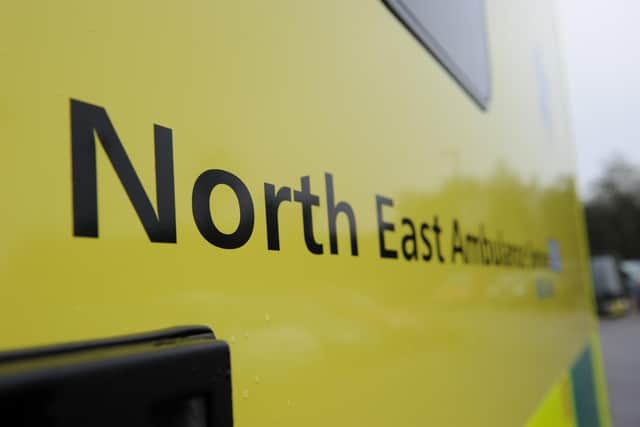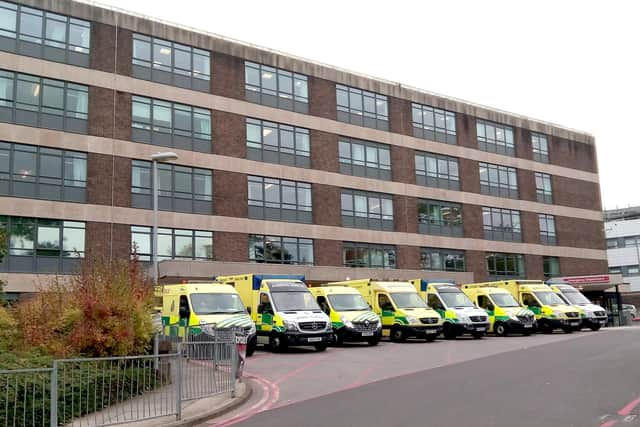North East Ambulance Service crews told not to return to base for breaks to help tackle escalating response times
and live on Freeview channel 276
Paramedics and support staff have been instructed they should now eat at whatever hospital or ambulance station they are closest to. To cover any additional costs of having to purchase food, each crew member will be given a £5 payment for each break they take away from their base location.
The decision comes as patient waiting times have escalated due to the ongoing pressures of rising Covid cases which has resulted in some patients waiting several hours for an ambulance response.
Advertisement
Hide AdAdvertisement
Hide AdThe situation is compounded as increased pressures on hospitals have resulted in ambulances facing long delays in handing over patients into the care of hospital staff, causing subsequent delays in being able to attend other call-outs.


A recent review of meal break arrangements over a three-day period found emergency crews could potentially be unavailable for nearly 60 hours due to the travelling time associated with returning to their base for breaks – equivalent to being able to respond to 37 additional incidents a day.
NEAS Deputy Chief Operating Officer, Vicky Court, said: “We are making these temporary changes to reduce the risk of patients being harmed by ambulance delays.
"The safety of patients and our staff is our top priority and the evidence is overwhelming that making this temporary change will allow us to see more patients quicker and reduce the potential harm that occurs when there are long waits for an ambulance.
Advertisement
Hide AdAdvertisement
Hide Ad“This is not a permanent change. It will only last over winter up to the end of March while we continue to experience the enormous pressures upon our service.”


The review also looked at scheduled care crews, who mainly transport patients to and from pre-planned appointments but regularly provide support to their emergency colleagues. The review found they were unavailable for just over 7.5 hours each day due to the current meal break arrangements.
The planned change will also now cover these non emergency crews, freeing up more time for them to support their colleagues in transporting patients to hospital who do not require clinical interventions en route, thereby freeing up emergency crews to respond to other patients.
Vicky added: “In a bid to try and avoid delays, crews are often sent late for their breaks, impacting on their health and wellbeing. We think this temporary measure will also improve the wellbeing of some of our staff who have not been able to take a proper break for several hours because of the distances they have to travel back to their base location.”
Advertisement
Hide AdAdvertisement
Hide AdAmbulance crews work shifts lasting between 10-12 hours and are usually stood down by the NEAS dispatch team to travel back to their base station for their two 30-minute breaks.
This time is protected and means they are unavailable to respond to patients. However, when taking into account the distance crews need to travel to return to their base station – sometimes taking up to an hour – this can lead to crews being unavailable to respond to patients for much longer than 30 minutes.
The change, which comes into effect on Monday, January 3 will run until March 31.
A message from the editor:
Enjoy our headlines with fewer distractions and sign up to a digital subscription today - fewer ads, faster load times and all of the stories you need.
Your support for our journalism means we can continue supporting our communities for generations to come.
Click ‘Subscribe’ in the menu to find out more and sign up.
Comment Guidelines
National World encourages reader discussion on our stories. User feedback, insights and back-and-forth exchanges add a rich layer of context to reporting. Please review our Community Guidelines before commenting.